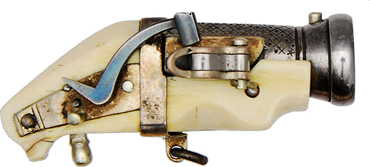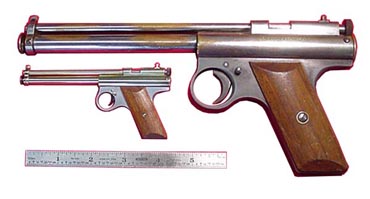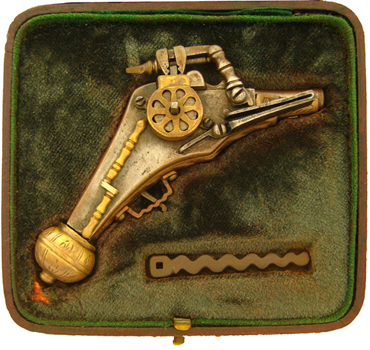 |
||
|
||
|
Collecting Miniature Arms: In the somewhat lengthy history of their existence, miniature arms have been admired, valued, collected, and sometimes even misunderstood. Definitions of them abound, but in the most practical and pragmatic sense they are reduced versions of full-sized arms. While miniature arms are scale models, they do not differ in function, design, or number of components from the full size arms which they replicate. Arms in miniature date back to the 16th Century and, for two important purposes, were required to have absolute accuracy. In the early days of the European guild system a journeyman gunmaker, cutler, or armorer had to fabricate in exact miniature a fully workable gun, sword, or suit of armor in order to become a master of his trade. Such an undertaking required both the required skills as well as an artistic sense to create new methods for developing small components. Because of the rigor and discipline involved only a limited number of journeymen became masters. The small number of masters who existed were rarely idle, for the second important need for miniatures was concerned with the actual marketing of the full-sized weapons. Arms salesman traveling over long distances carried miniatures to show customers, and considerably more sales could be made, especially if the salesman parted with one or two of the prized miniatures as an incentive for a large order.
Today, four centuries later, the irresistible appeal of anything
miniature still exists. Also, the scarcity of real miniature arms
makes them most desirable as collectible items. |
|
 Miniature Edo era Japanese matchlock, circa 1600s Antique 3mm German rimfire Antique Spanish Miquelet lock miniature. |
 Miniature Benjamin air pistol, with full size pistol.
|
| Home | Collecting | Making | MAS Journal | Join | Galleries | Links | Contact |
